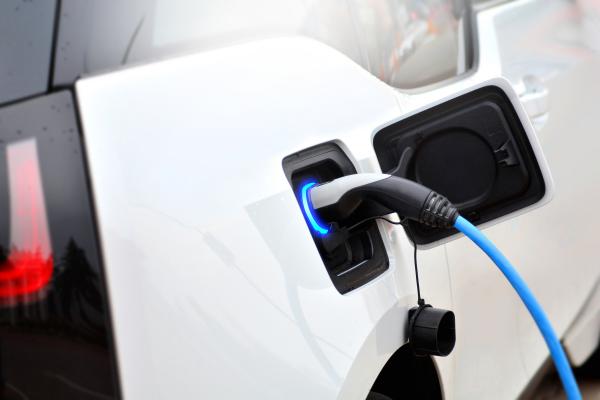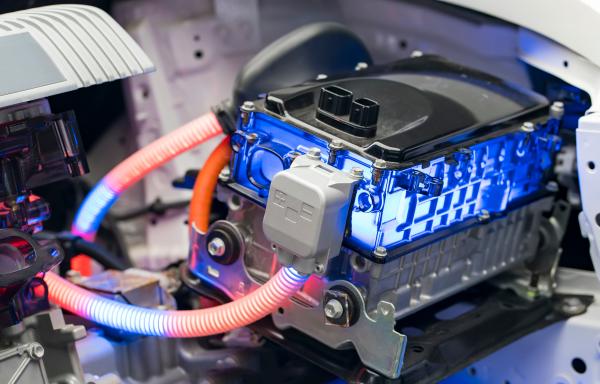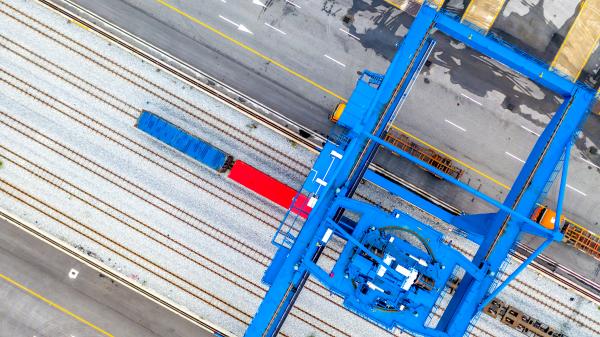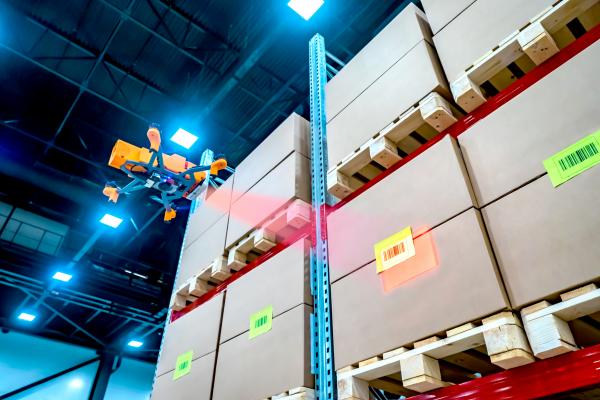Hydrogen – your road to success
Hydrogen drive technology is central to Brandenburg’s economic interests as it is one of the essential factors for a successful energy transition.
Brandenburg has been a leader in renewable energies for many years now. With the highest installed per-capita output in Germany, there is huge potential for hydrogen here. And an important foundation for sustainable mobility.
Transport is currently Germany’s only economic sector in which greenhouse gas emissions have not fallen since 1990. They’ve actually increased. The transport industry faces huge challenges when it comes to avoiding greenhouse gas emissions.
Offering completely new approaches, this is where hydrogen technology comes in. H2 makes it possible to interlink different sectors: energy, heat, transport, and industry. Huge potential is opened up for far-reaching decarbonisation. Brandenburg facilitates the development of technologies like these.
The APUS Group develops hydrogen-based aircraft engines and aims to lead the integration of more sustainable, eco-friendly drive systems. The Deutsche Eisenbahn Service AG is converting its diesel vehicles with hydrogen drives, and Rolls-Royce is working with BTU Cottbus-Senftenberg to test hybrid electrical propulsion for air traffic.
Come and join us
We fund Green Mobility – with confidence
-
H2RAIL.PRIGNITZ
Closecontinue reading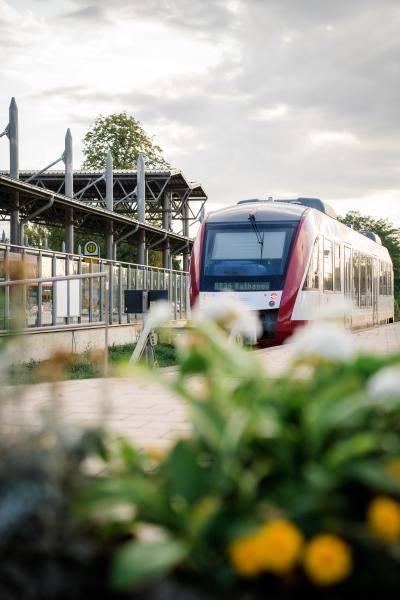 kein Fotonachweis nötig
kein Fotonachweis nötig -
Close
Hydrogene instead of diesel
The Deutsche Eisenbahn Service AG (DESAG) in Putlitz has teamed up with project partners to refurbish existing diesel vehicles with hydrogen drives. By doing so they want to offer an alternative to expensive investments in new vehicles. This idea has our full support.
The project partners:The idea has already developed into an SME consortium run by three project partners.
DESAG leads the project and is responsible for railway technology management, while
Brandenburg-based NACOMPEX GmbH takes care of the hydrogen aspects. They provide the chemical storage necessary for the storage method. TU Dresden acts as the project’s research and knowledge partner.

The region of Prignitz offers ideal conditions in Brandenburg for a H2 real laboratory using green H2 from renewable energies. Green hydrogen is available right by the railway tracks here, thanks to an existing power-to-gas plant. One-of-a-kind in Germany!
Dr. Ralf Böhme, DIRECTOR OPERATIONS DESAG -
HYDROGEN WANKEL ENGINES
Closecontinue reading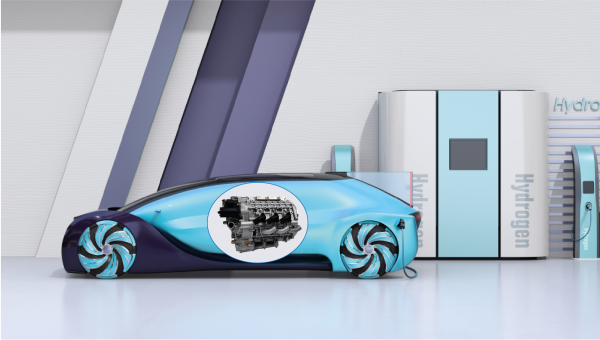
-
Close
On the move with hydrogen
The first test with a hydrogen-powered rotary engine took place in September 2019. The drive combines multiple advantages of the Wankel engine with hydrogen’s huge potential as a sustainable energy carrier.
When you click, you will be redirected to Youtube -
REFERENCE POWER PLANT LAUSITZ
Closecontinue reading
-
Close
The hydrogen-based power plant
A modern storage power plant that uses renewable energies to supply green hydrogen – that is the objective of the Reference Power Plant Lausitz.
This power plant represents the launch of one of Lusatia’s most promising project ideas for structural changes in the region. The agreement for the “Reference Power Plant Lausitz Phase 1” was signed in December 2019 at the Schwarze Pumpe Industrial Estate in Lusatia.
The Schwarze Pumpe Industrial Park Spremberg and the Lusatian Energy Company (LEAG) are the main drivers of this initiative. Two other companies from the renewable energy sector are also involved, Energiequelle GmbH Zossen and Enertrag AG Gut Dauerthal.
The Steinbeis Technology Transfer Center in Rostock and the CEBra Centre for Energy Technology in Brandenburg provide scientific support. The Lausitzrunde, Siemens AG, Ontras GmbH and 50 Hertz Transmission GmbH are also involved.The reference power plant will be a storage power plant based on hydrogen.
The power plant’s objective? To reliably provide all the system services required for safe and stable electric power supply, and to carry out energy storage with hydrogen at the same time.
Hydrogen storage and withdrawal should take place automatically to ensure that over-supplies from renewable energy plants and temporary performance deficiencies are equally manageable.
The future hydrogen core network in Brandenburg
The provision and further expansion of the hydrogen core network will create a high-performance infrastructure for supplying energy-intensive industrial companies and ensure the further development of a future-oriented hydrogen economy in the state of Brandenburg.
YOUR CONTACT








